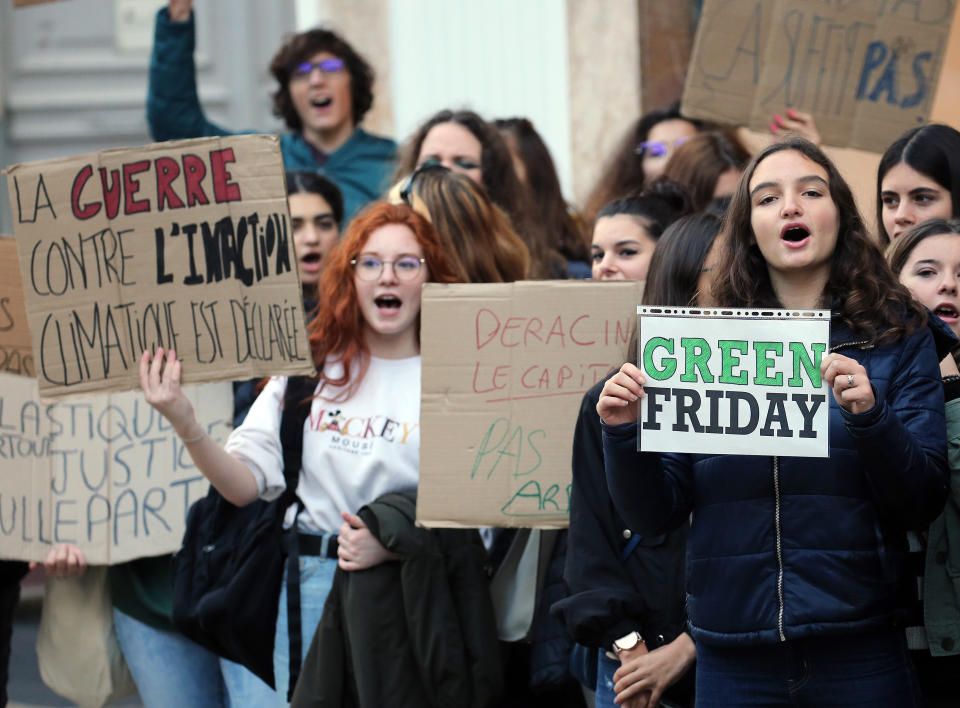Black Friday protesters hit back with ‘Buy Nothing Day’
Black Friday is set to be the biggest shopping day of the holiday season. Salesforce projects online sales to hit $40 billion globally, with $7.4 billion spent in the United States alone — a 16% year-over-year increase. According to Adobe Analytics, Thursday was the first Thanksgiving Day ever to surpass $4 billion in online sales. But not everyone is shopping. Activists are protesting consumerism with ‘Buy Nothing Day.’
Canadian artist Ted Dave started Buy Nothing Day in 1992 and it later got promoted by the Canadian magazine Adbusters. The protest’s website urges people to “buy less, live more.” And aside from not shopping, supporters are encouraged to cut up their credit cards in stores, wander malls like zombies chanting, “Buy Nothing Day,” and form long, “inexplicable” conga lines in shopping center parking lots.
Climate activists have also joined in on the protest, declaring Black Friday to be “one of the most polluting, destructive days of the year: extinction & climate change come at a discount,” one participant said in a tweet.
#BuyNothingDay because most of what we buy comes on container ships from far away . . .
The 15 largest container ships spew out as much pollution as all of the cars on the planet
And there are 5,000 container ships on the seas today
We are literally shopping ourselves to death pic.twitter.com/4rPMql5zmY— Steven Cotterill (@socialiststeve6) November 29, 2019
The hashtag #BuyNothingDay has started trending on Twitter, with users sharing statistics about consumerism and its impact on the environment. Protests around the world began early Friday as activists targeted companies including Amazon, blocking access to its distribution centers.
Effect of consumerism on economy
In 2016, the World Economic Forum (WEF) declared that climate change was the biggest threat to the global economy —greater than that of weapons of mass destruction, water shortages, mass migrations, or a severe energy price shock.

Shopping contributes to climate change in many ways, by customers driving to stores, distributers shipping products to stores and homes, and the creation of the products themselves, among others.
Even those who choose not to get on the road to take advantage of Black Friday deals can still negatively impact the environment.
According to the Economic Roundtable, Amazon’s trucking operations in Los Angeles in 2018 created an estimated $642 million in uncompensated public costs for noise, road wear, accidents, and harmful emissions.
And in 2018, Amazon estimated that its total carbon footprint equaled 44.4 million metric tons of CO2e, a carbon dioxide equivalent.
But some critics say that movements like “Buy Nothing Day” don’t actually do anything, because curbing individual shopping won’t make an impact. According to a 2017 study from the Climate Accountability Institute, just 100 companies were responsible for just over 70% of all the greenhouse gas emissions around the world.
Kristin Myers is a reporter at Yahoo Finance. Follow her on Twitter.
Read more:
Read the latest financial and business news from Yahoo Finance
Follow Yahoo Finance on Twitter, Facebook, Instagram, Flipboard, LinkedIn, YouTube, and reddit.
